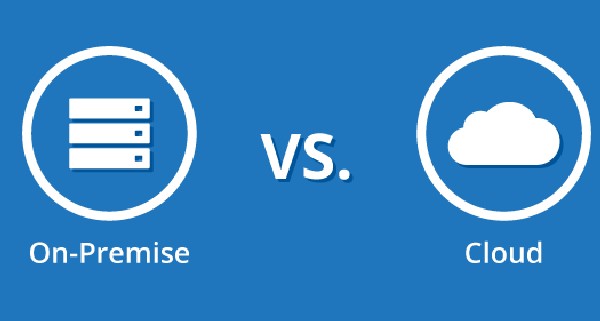With the increasing popularity of decentralized workspaces, cloud storage solutions have enjoyed a popularity boom. 93% of businesses now use some form of a cloud-based system. But just because something is popular, doesn’t mean it is the best data storage option for every business.

Both on-site data storage solutions and cloud storage have their own benefits and drawbacks. What works for one business may not be suitable for another. Here, we explore the pros and cons of each solution to help you decide which best meets your storage needs. For more information on data storage options, explore the IT services from MyTek.
What is the difference between cloud and on-premise solutions?
To understand the pros and cons of each storage solution, first, it pays to look at how the two methods differ. Cloud solutions store your data with a vendor that can be accessed from anywhere through a web portal. Employees with access to the data can simply log in to the third party’s portal and access everything they need on the fly.
Meanwhile, on-premise solutions keep the data, as the name suggests, on-site. You keep your information on your servers and are responsible for the upkeep and management of your hardware and software.
Cloud Storage Solutions
Pros
· Cost
Cloud storage solutions have a much lower initial financial outlay. Because your company does not need to purchase any hardware or software, costs can be kept low.
· Security
Many cloud storage vendors offer an exceptionally high level of security on their products. Their business relies on keeping people’s data safe. As a result, providers invest extensively in the most up-to-date security systems.
· Scalability
Cloud storage options are scalable. Companies can simply request more storage or seats, rather than having to purchase more servers and hardware.
Cons
· Control
Cloud storage solutions offer the same services to every client. Therefore, there are not the same opportunities for customization as there are in on-premise solutions. Additionally, it is not always obvious where the data is being stored and who exactly has access to it.
· Integration
Businesses that require cloud integration with on-premise solutions may have difficulties. The rapid update schedules can cause disruptions and leave systems unstable during updates.
· Only as Good as the Internet Connection
Cloud solutions store data off-site. The only way to access this data is through a strong and stable internet connection. Slow internet connections or service disruptions will leave businesses unable to access their data.
On-Premise Solutions
Pros
· Long Term Cost
Once you have purchased the necessary hardware and software, the running costs are significantly lower than the monthly costs incurred by cloud storage vendors.
· Customizable
Security, hardware and software configurations are fully customizable for the individual business’s needs.
· Offline Access
On-premise solutions have local access capabilities, eliminating the need for a strong internet connection. In places where connectivity is often disrupted, businesses can continue to access data stored on-premise, making it well-suited for areas with an unreliable or intermittent internet connection.
Cons
· Upfront Costs
The initial expenditure on hardware and software can be substantial. On-premise solutions also require installation which adds an added expense to the process.
· Backups
On-premise solutions are vulnerable to natural disasters and accidents unless they are integrated with a cloud storage solution or backed up off-site. If all the on-site servers are damaged or destroyed, any data that is not backed up elsewhere will be destroyed with them.
· Updates
On-premise solutions typically do not receive updates as regularly as cloud storage options. When they are updated, the updates typically require extensive software or hardware improvements and can be time-consuming and incur additional costs to implement.
